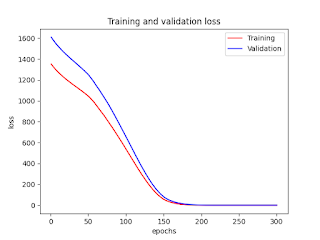(Spread) = (Deal price) - (Price after the deal announcement)
Timing (annualized return): approval from regulatory authorities, approval on a shareholders meeting, completion of merger / acquisition
Capital cost (borrowing cost for long, lending gain for short)
Dividends (gain for long, cost for short)
Taxes (short-term capital gain tax, tax-exempt or not?)
Risk
Deal break-up
Regulations
Due diligence (financials and law/regulation)
Capital raising (cash, credit facility)
Hostile takeover (e.g., poison pill, staggered board of directors, shark repellents)
TOB or Shareholders voting
Decline of the stock price of acquirer (when it's stock swap merger)
Other conditions
Valuation: earnings to deal price, sales to deal price, EV/EBITDA
Break-up fee: usually around 2% of the deal dollar amount
Cash or stock for acquisition
----------
[Decision making flow on risk (merger) arbitrage]
Questions before taking actions
1) How much is the spread / annualized return?
2) What is the problems and obstacles from (anti-trust) laws and regulations perspective?
3) Did you complete fund raising?
4) Did you complete due diligence?
5) How much is the downside risk when deal-breaking?
Corpoarate analysis
1) Who's the buyer?
1) Who's the buyer?
Buyer's financials (B/S, interest payment / operating profit)
Buyer's reputation (past M&A activities)
Buyer's size (Does the M&A change their business strategies?)
Why does the buyer want to merge or acquire? (strategic and/or financial reasons)
How much has the buyer already bought the shares of the target?
2) Who's the seller?
Seller's financials
Seller's current business (same or different?)
Seller's reason to get merged or acquired
Is there any ongoing lawsuit or any unresolved conflicts for the seller with others?
3) The company after merger or acquisition
Any corporate growth?
Any synergy (including cost reduction)? If any, how much?
Financial statements after the M&A. Does it make sense?
Fund raising
1) How to raise fund for the M&A? Stock, cash, or LBO?
2) Did the buyer finish fund raising? Any credit facility from a bank?
3) Is there any reason that the fund raising is not a problem?
4) When stocks are used for the M&A, how much are new shares issued? How much dilution?
Background
1) Friendly or hostile deal?
2) How does the deal happen? Who brought it?
3) Does the seller want to sell themselves? If so, why?
4) Any other buyer? Any higher bid price?
5) For bidding, any competition? Non-public?
6) Who's a financial and legal adviser?
Conditions
1) What are the conditions to complete the deal?
2) Have the due diligence completed? Or is it a necessary condition?
3) How much is the minimum bidding shares and/or actual bidding shares?
4) Which counter-party can cancel the trade and under what condition?
5) What is an obstacle that prevent the deal from getting completed? (revenues, profits, or minimum sales)
6) Any uncancellable debt obligation on the seller?
Law/regulations
1) HSR anti-trust
Any duplicated business?
TOB for 15 days, merger for 30 days
2) Approval from FTC and/or DOJ
Any concerns for competitions in the industry?
How much market share after the M&A?
3) Approval from SEC for calling the shareholders' meeting
Any required amendment for the invitation? If so, what's the problem?
4) Approval from states
Insurance, medical, utilities
5) Approval from industry authorities
Banks: FRB
Utilities: FERC
Communications: FCC
6) Approval from foreign authorities
e.g., EU, a certain foreign government regulatory body
Risk vs returns
1) How much deal spread / annualized return?
2) When deal break-up, how much is the downside risk?
3) Probabiltiy of the deal break-up - what triggers?
4) Any other possible buyer with a higher bidding price?
5) Is the deal done? Any letter of intent / memorandum? Advanced negotiation?


No comments:
Post a Comment